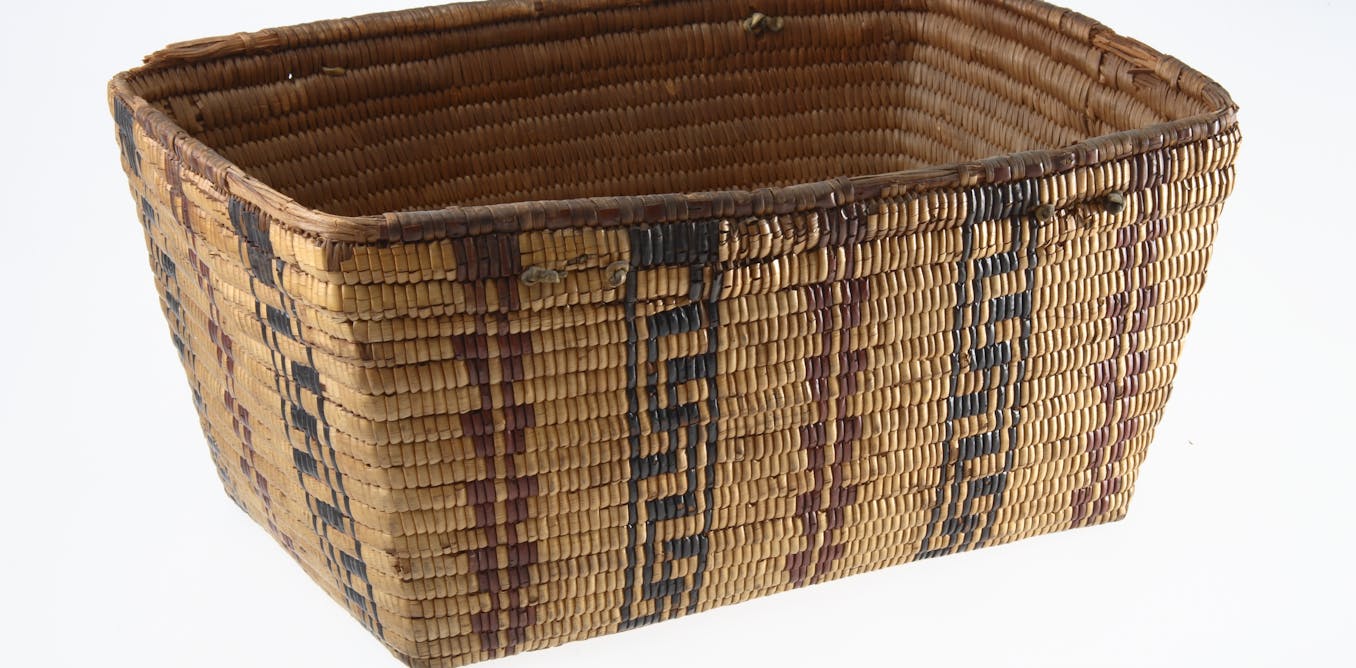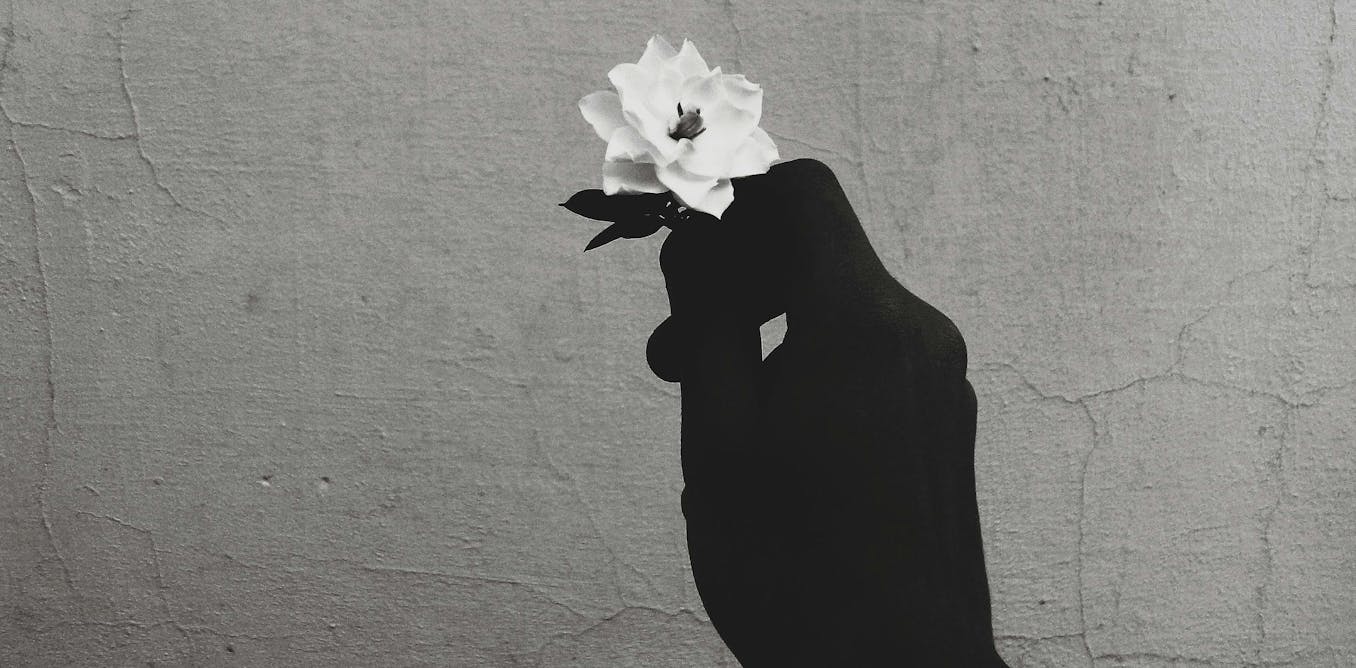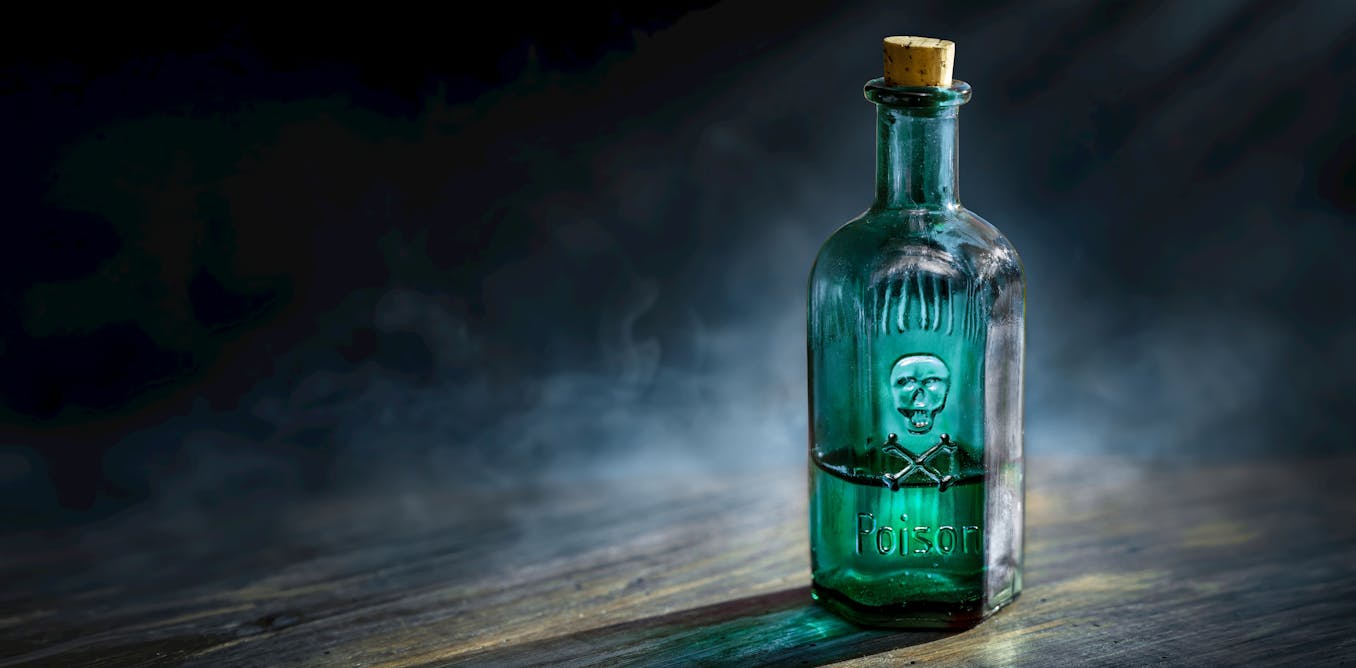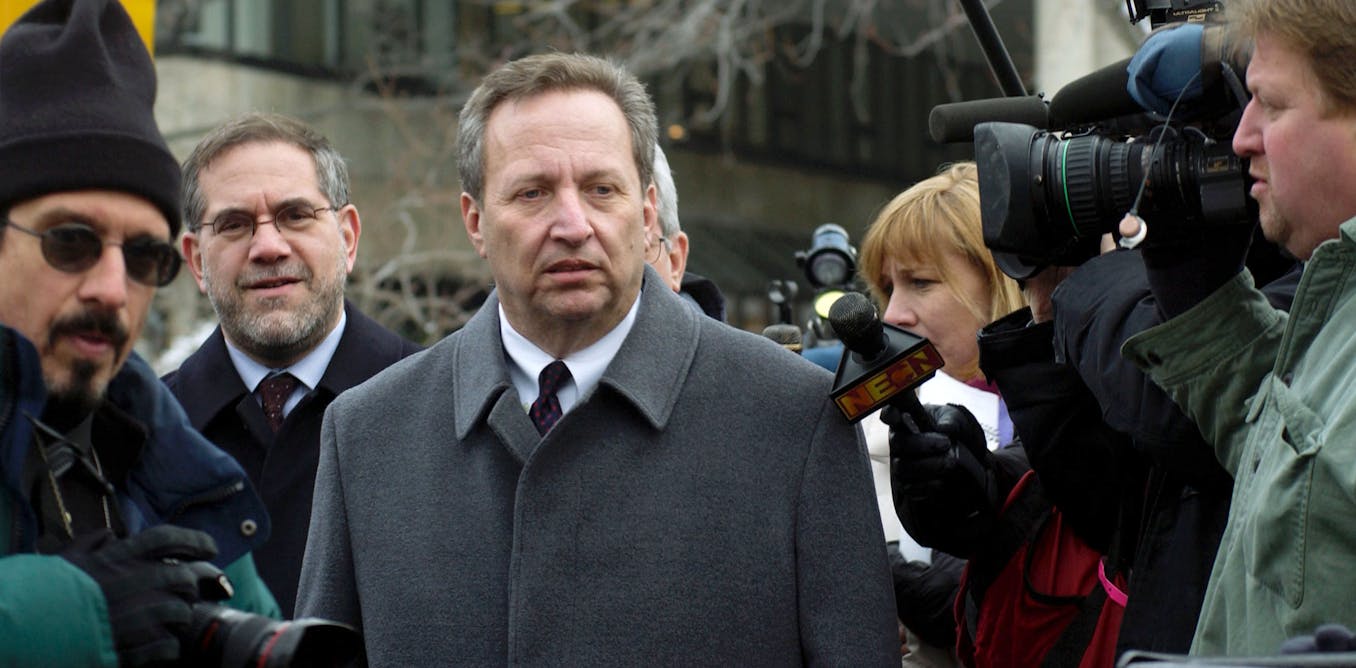Indie rock shows are often the province of, as LCD Soundsystem’s James Murphy said in the band’s “Tonite,” “the hobbled veteran of the disc shop inquisition” — the graying, largely male species of armchair critics who listen to Sirius XMU and love to lord their music discoveries over those less informed. Not so with Car Seat Headrest: The Seattle-based band’s concerts attract a fascinating cross-section of fans. Yes, the geezers are there, but so are the moshers, frat bros, furries, and — lending hope to the future of rock’n’roll — millennials, Gen Z and even a smattering of Gen Alpha teens letting their freak flags fly.
Car Seat Headrest’s music speaks to this multitude of generations in part because, musically, they have synthesized their many individual influences — past and present — into a sui generis sound. The band’s leader and primary lyric-writer, Will Toledo, grew up listening to his parents’ folk and country albums, as well as classic rock, r&b and soul. CSH’s guitar genius Ethan Ives lately has been listening to Beethoven, Pentagram and King Crimson. As a unit, the quartet, rounded out by drummer Andrew Katz and bassist Seth Dalby,’ have played and toured together for the last 10 years or so — circa the release of 2016’s breakthrough album, Teens of Denial, and in this time they have achieved a virtuosity that stands out among their peers.
Lyrically, Toledo has largely avoided pop and rock tropes, like romantic love, sex and heartbreak (although drugs often figure into his songs). He prefers to gouge deeper into tough, unsolvable existential topics: alienation, familial relationships and the melancholia that comes with growing up in the digital miasma of the 21st century.
These outsized talents and a sizable amount of ambition — long a CSH trait — all come together impressively on the band’s first fully collaborative album, The Scholars, a rock opera that is destined to stand with landmark recordings from previous decades: The Who‘s Quadrophenia (1973), Pink Floyd‘s The Wall (1979); Drive-By Truckers‘ Southern Rock Opera (2001) and Green Day‘s American Idiot (2004).
The Scholars, which Matador will release on May 2, stands apart from those other epic recordings in that it is more of an existential exploration than a strictly conceptual one. It’s a musically rich story propelled by a succession of characters — some who interact and some who don’t. (Ives compares it to Paul Thomas Anderson’s 1999 film, Magnolia.) The album is set in and around the fictional Parnassus University, populated by numerous characters — Beolco, Devereaux, Artemis and Rosa, among them — and narrated by The Chanticleer, a Greek symbol of courage and grandeur, and in Old French translates to “to sing clearly.” The antique-sounding names and places seem to be a conceit to show that past is prologue. Even when songs allude to cancel culture (“Equals”) and societal and environmental decay (“Planet Desperation”), these are not new problems. They’re just disseminated now by social media, not a Greek chorus. It’s the kind of album that will resonate with young folks forced to move back in with their parents because of the economy and the parents who are housing them.
The Scholars requires a certain amount of commitment. Three of the songs, “Gethsemane,” “Reality” and “Planet Desperation” break the 10-minute mark, with the last of the three clocking in at 18:53. And yet, the lion’s share of the songs come with sticky hooks that build and progress in a way that belies their length. “Gethsemane,” which approaches 11 minutes in length, is even getting a good amount of play on Sirius XMU, and the album’s pinnacle, “Reality,” in which Ives and Toledo share vocals — they liken it to Pink Floyd’s “Comfortably Numb” — could easily go on beyond its 11:14 run time.
Dalby, Ives, Katz and Toledo came together on Zoom to discuss the making of The Scholars, the ideas behind the music and lyrics, their upcoming tour and their side projects. (This interview has been edited for length and clarity.)
Sonically, The Scholars reminds me a bit of David Bowie’s Blackstar in that there’s such a symbiotic feeling to the music. You feel that you’re inside it. How did you guys achieve that?
Will Toledo: I don’t recall everything about the Blackstar sessions, but I feel like they probably worked and jammed together. I think the musicians he recruited were already kind of a unit, and they were used to improvising together and collaborating. You have that symbiosis, because that freeform mesh was already there.
For us, some of the material came out of solo demos from me and Ethan and everybody else, but a lot of it resulted from us just jamming in the studio together. We’ve had ten years of being a band, and mostly our opportunities for jamming were limited to soundcheck when we were not ready to soundcheck or practices when we were not ready to practice. This was the first opportunity where we would go in and spend a whole practice session just jamming. We really wanted to get loose with one another, fall into comfortable patterns and just go wherever the music was taking us. That resulted in an interchange — a more distinct weaving together of our voices. Whereas past records were more about solo material brought in to be played by the band.
Ethan Ives: We have a lot of musical influences in common, but we also each listen to our own individual styles of music. On this album, what you’re hearing is that we had a directive for each song. It was okay, this song needs to go to this place or touch on this theme. Part of the process this time was about throwing that to the room and then playing the flavors of music that we’re [each] familiar with to build out the song. So, maybe there was more of a deeper well of stuff getting pulled on in this one.
Toledo: What I see in myself and how I play into the band — I’m very sensitive to sensory experiences and social experiences and I do tend to automatically hone in on, here’s the part I like. That kind of comes naturally to me. I’m always picking up stuff as I go, and thinking, “This doesn’t make me so comfortable.” Or, “Ooh, I want to change that more.” What I’ve had to work on more is patience and not judging stuff right away. Because especially in a jam you want to let stuff build organically. Really, for this record I was just trying to come in and listen to how the other three were intersecting, and just as far as what I was playing, push that and weave that together. I feel like my strength is more as an arranger than as a sort of composer from nothing.
Will, are the lyric credits all yours?
Toledo: Most of them. Pretty much anything that Ethan sings lead on he wrote, and for songwriting credits we just do a four-man split — that was what we agreed on going in, because of the way that we were creating this music. For most of the songs, I would take them home and write lyrics, especially for pieces that Ethan had come to the band with. He was developing the lyrics there as well.
Before Making a Door Less Open, a lot of your songs sounded like they could be pieces of a rock opera. Is this something you’ve had in mind for a long time?
Toledo: Growing up with records like Dark Side of the Moon and Pink Floyd in general and The Who, I was always aware of the possibility of a concept album or a rock opera. I always shied away from the idea of doing it because it’s a pretty daunting concept and I didn’t want to sacrifice the song-by-song quality of things to make some sort of narrative. After Making a Door Less Open, though, that was an approach where each song was really its own world, and the record came out a little disjointed because of that. You have to magnify with a microscope each one of those songs to appreciate it. That’s an interesting approach, but I wanted a more cohesive flow to an album.
So, I felt more inclined to go in the opposite direction. I landed on a midway approach, where we weren’t going to force a narrative, but have this idea where each song is a character. That way, we can still preserve the integrity of each song and feel good about the ones we put on the album. But then there’s that inherent narrative quality that comes when you’re seeing each character come out on stage.
How would you synopsize The Scholars?
Ives: Part of what I feel a sense of accomplishment about and what I feel is successful about the album is that it’s my favorite type of conceptual record as a listener. Which is that the narrative is not so rigid that it has an authorial narrative interpretation. Pink Floyd’s The Wall has a very specific meaning. That’s not a weakness, but it is a very particular style of concept. I tend more towards albums that have conceptual threads but are more interpretable or more based on abstractions. We probably all will have a different version of what we think the album represents, but I think of it as tracking the lives of a bunch of different characters to amalgamate a greater life/death/rebirth cycle. It’s a cycle that could be seen as one person’s life, but it’s really a series of different story beats made from moments in different people’s lives, in a Magnolia sort of way.
Toledo: My interpretation wouldn’t be too different. Like Ethan, I prefer concept albums that aren’t so rigid that it has to be this plot. I was hoping for a record where you could put it on and not know that it was a concept album, or that there were these characters or this backstory, and still have a full experience. We wanted the music to speak for itself. As far as selling it to someone who needs a description, I would say it’s about weaving together the past and the present and having these young characters — who maybe don’t know a lot about the past and have problems that are more specific to our times — walking through these patterns that are quite ancient or timeless. I was pulling a lot from folk song tradition in crafting these characters and their struggles. In folk songs, you can see what people have been talking about for centuries and centuries and what really has sticking power.
Seth Dalby: I think Ethan and Will definitely have a more concrete idea of where each character lives and what their struggles are. For me it’s just a place to get lost. The setting is obviously like a fantasy school, and then your imagination goes wild with these characters.
Andrew Katz: You’re scraping the bottom of the barrel now for these answers. I’m not a guy that listens to lyrics. I listen to syllables and music. Asking me what an album means — you’re asking the wrong guy.
Toledo (to Katz): What would you say to yourself, if you had never heard this record, to say you should listen to it?
Katz: I would say it sounds epic. I go off of feel and how the words roll off the tongue. Even when I’m listening to songs by System of the Down, for example. They do a great job of just making s–t sound cool. I have no idea what any of those songs mean — what they’re supposed to be about. They just sound cool. I would say our album achieved that, too. It’s epic.
Will, you told Rolling Stone that The Scholars was an “exercise in empathy.” When I listen to the album, I hear a search for identity that comes with extreme sadness and pain. Does that sound right?
Toledo: Yeah, absolutely. One of the early concepts that I was working off is — it’s all these different characters, but it is also on a more spiritual level, one character and their progression through life, and even life and death. But maybe the life and death of an identity. I see this shaking off of the old and reaching towards the new, and there’s a lot of darkness and pain that comes along with that. You have to walk into the darkness to find out more about who you are. I kind of see each song as a step along that way.
Will, when the band performed the album at the Bitter End in February, you dedicated the song “Reality” to Brian Wilson. You called him “a prophet who lives in the darkness.” Ethan, you read a note about what you described as a generational divide. It sounded like you were talking about the Boomers and Gen X, but you all are millennials. Could you both elaborate?
Ives: Those things got all jumbled up for me in my upbringing because my parents were so deeply hippie that I feel like I skip a generation. I don’t want to give the impression that the whole song is purely about complaining about Boomers, but it’s a song that I picture as the main thrust of the character who wakes up one day and is like, “How did I get here? Why am I here? Why is this happening to me?” And then tries to trace back the chain of events that led things to turn out this way. And maybe there’s some regret and some reproach for other people or for an earlier version of yourself.
Will and I each wrote our respective lyric segments in that song, and I always thought of it as a “Comfortably Numb” vibe, where one singer takes one narrative point of view, and one takes another. We’re coming at the song from two different angles and meet in the middle where the emotional core of the character that I just described fits really well with the figures that Will was referencing in the lyrics. Artists like Syd Barrett or Brian Wilson, who experienced so much brilliance in their lives and then probably at some point just woke up late one morning and were like, “What happened to me?”
Toledo: Like Ethan said, we wrote our own parts coming at it from different perspectives. With the line, “We still sang songs and made merry, but deep down we knew something was wrong,” I got the sense that my voice would be as the Chanticleer character. So, when Ethan is singing, you have the voice of those people expressing this dissatisfaction and the feeling of, where did we go wrong. The Chanticleer character became for me this artist figure who has chosen to elevate the struggles of the people and, as artists sometimes do, chase the spotlight. The burden that comes with that is you have to dig into the hearts of people and find a deeper truth. I have these two choruses where they’re coming to the Chanticleer and saying it’s not enough. We need more color. We need more life. Then in the second chorus it’s too much. We can’t take it anymore.
The role of the artist —especially that Syd Barrett/Brian Wilson type — is a bit of a toxic one, because culture really elevates those who fly very close to the sun and get burnt. It lets them suffer for the sake of being that preacher. I have a conflicted relationship with it, because I loved these artists and the idea of that kind of artist when I was a kid. And I played my part in elevating that idea of artistry. Now I try to find other models that are more stable. But there is a basic truth where, if you want to dig and try to speak those deeper truths, you do get burned.
Your parents were in the audience at The Bitter End. A lot of Car Seat’s music — I’m thinking of “There Must Be More Than Blood” and on this album, “Lady Gay Approximately” — have parental or familial themes.
Toledo: Yeah, on this record specifically, but even beyond that when it comes to writing about love, I’m just not that interested in writing about romantic love and partner love. That is really almost the only type of love that you hear when you think about a pop song. I look towards other traditions, and especially in country and gospel tradition, there’s a lot more of singing about parent-child relationships. That seemed like a more meaningful thing to me to write about.
“Lady Gay Approximately” is based on a folk song called Lady Gay which is about a mother and her children. I was also looking towards the bible for inspiration and in Genesis, a lot of content is about parents and children; fathers and sons; mothers and sons. This model of love is the one that we know throughout all our lives. So, it seems like it’s more relevant and important to write about. And that became a focal point of this record.
Do you guys have any thoughts of staging this as a rock opera? I don’t know if any of you saw Illinoise, the dance musical built around Sufjan Stevens’ music. Also, I could see this being made into a movie like the animated film Flow. Given the love that the furry culture has for you, I could see the director of that film [Gints Zilbalodis] doing something fantastic with the album.
Katz: Hey, if the director of Flow wants to make a movie about our album, yeah, for sure. That would be great.
Toledo: I’m usually the brake presser as far as opportunities, because there are plenty of things that we can do, and it’s more of a question of, “What do we want to take on this year? How many things can we take on before things start splitting off?”
Right now, we’re happy and we’re busy. We’re practicing for our show, and we are going to be playing this record live, but it’s just going to be the band and some lights. There’s not going to be any elaborate staging beyond that. We figure the music speaks for itself. We would rather have something simple where we can really feel like we’re comfortable onstage. With [Making A Door Less Open], we upped the theatrics, we upped the costumery, and it was kind of a drag. There was a lot to worry about every night — a lot that can go wrong. We all prefer to keep it as simple as possible on our end and give it a better chance of being good and replicable every night.
Beyond that, we’ve got a Patreon. Every month, we’re putting out content there. I’m trying to write two new songs every month and put them out. As far as more content for Scholars, more adaptations of it, as Andrew said the right offer might come along and then we’d consider it. But as far as actively pursuing it, we’re happy with the workload we’ve got at the moment. I would say, “Let people sit with the album, come up with their own images of it — and if something else comes out of it, let it be organic.”
Are you going to play the whole album on the tour?
Toledo: It will be more or less the whole album. We might skip a song or two, but the idea is to keep that flow. Practicing for the Bitter End and earlier, we all just agreed that this album has a good flow from start to finish. It feels good as an album and it feels good as a show.
When I go to your shows, I just see so many different types and ages of people. Why do you think you appeal to such a wide array of music lovers?
Toledo: That’s one thing that’s always really pleased me about our live shows. There’s always a big mix. I think it started out with the way that I approach music. I didn’t grow up enjoying modern pop music. I trended heavily towards what my parents were listening to — so ‘60s music, older country and folk music. That gave me a backbone musically that differentiated the early Car Seat Headrest music from what other people were doing. It was a little more isolated, and I think, because of that, it took several years before it started to find an audience. Younger people connected with the emotional content, which was as a young person writing lyrics and content. I was expressing stuff that they could relate to as well.
And then, as we became a band, rather than homogenize and do something that appealed to one audience, we were all bringing different stuff to the table. We’ve always just had that approach of: cast a wide net, see what the overlap is, see what we can all agree on. And then that diversity of opinion and approach creates music that resonated with a lot of different people.
Most you have released side projects. Ethan, is there a new Toy Bastard album in the works?
Ives: There’s one that came out last summer, The War, that I’m still repping to people. I worked really hard on it and was very pleased with it. I worked with Jack Endino [Pacific Northwest producer of Nirvana, Soundgarden, L7] a little bit. He engineered a portion of the tracks, and he was fantastic. You can tell the songs that he engineered because they have a special flavor that only he can bring.
Katz: I’m working on a new 1 Trait Danger album. Who knows when it will be out? I’ve got nine songs done, but I’ve got to meet with Will when he’s ready and get him to orchestrate the story. Will’s job is to create the narrative with the crazy songs that I make.
Dalby: I don’t know if mine is ever going to be out, but it will be finished at some point.
Ives: I feel like you’ll finish it and then just put it on a hard drive and lock it away.
Katz: No one is ever hearing that music.
What are you guys listening, reading or watching right now that moves you?
Ives: I’ve been listening to a lot more classical music. A lot of the late Beethoven string quartets but then mixing them up with listening to a lot of Pentagram and King Crimson.
Toledo: I’ve been a little scarce on consuming music. I just realized that my life was kind of surrounded by movies and TV and music. Lately I’ve been trying to just cut back and enjoy silence and whatever sounds are in the sphere that I’m in. And just talking to people really. I mainly listen to our own music because we go in and practice it. Or writing and practicing the new material and putting it out on Patreon.
Do you guys ever talk in terms of a five-year plan?
Katz: No, but I like where your head is at. I see myself in a huge mansion on the water. It’s a pipe dream, but that’s where I see myself.
Ives: I feel like we have our version of that, and then the way that music and the music industry works, we always end up having a completely different thought about it 12 months later.
Toledo: For us, five years is baically an album cycle — so where we’re at in the cycle is where we’re at in the five-year plan. We don’t discuss it that often, because it is what it is. Right now, we’re basically on the final year of the Scholars cycle — maybe another two years — but it’s more about seeing where we’re at and what work we’ve got to get done.

The post “Car Seat Headrest on Talkin’ ‘Bout Their Generation With Ambitious New Rock Opera” by Frank DiGiacomo was published on 04/30/2025 by www.billboard.com






































Leave a Reply